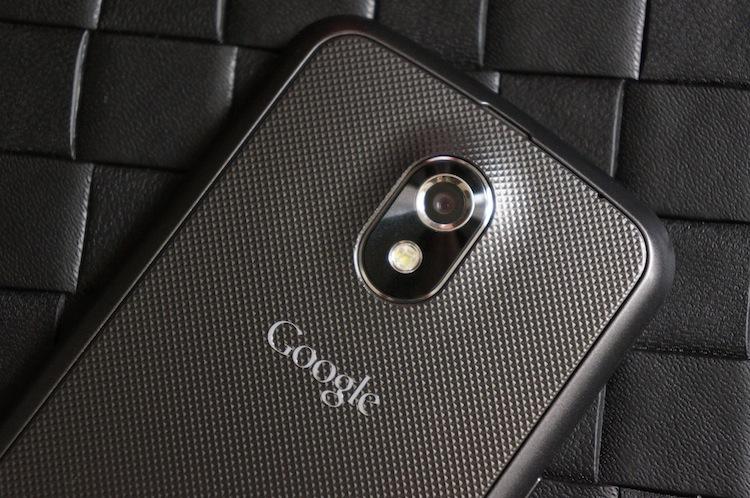
Android is well on its way to rule the world. Google's open source mobile platform is finding itself in all sorts of consumer electronics, from the typical smartphones and tablets to home appliances such as washer and dryer pairs or refrigerators. And if Google's Project Glass is half as daunting as it looks (ads literally in-your-face), Google may have legions of mind-controlled Android users in a matter of years.
Okay, so mind control may be a stretch. But Android domination certainly isn't.
The comScore report from last week revealed that Google is still the top mobile platform in the States with 53.6 percent of the U.S. smartphone market share. And it shows no signs of slowing down anytime soon. Android's growth between July and October 2012 was 1.4 (52.2 to 53.6 percent) versus Apple's iOS, which grew 0.9 (33.4 to 34.3 percent). All other platforms lost market share: BlackBerry fell 1.7 points to 7.8 percent, Windows Phone and Windows Mobile fell 0.4 points to 3.2 percent and Symbian fell 0.2 points to 0.6 percent.
Just as no empire lasts forever, though, Google's reign in the mobile realm will one day come to an end.
It may currently seem unlikely considering Android holds over half the U.S. smartphone market share. A platform with that level of market penetration isn't going to disappear overnight. It's open source and the people love it. So long as Google doesn't make a misstep and stop innovating, people will continue to use Android for years, maybe even decades, to come. However, at some point, Android will see a decline. It's inevitable.
This isn't the first time this topic has arose on PhoneDog. I first asked which mobile platform would knock Android from its pedestal in May 2011 in anticipation of major webOS, BlackBerry and Windows Phone releases. A similar piece surfaced last December when multiple sources corroborated on the belief that Android would hit its peak in 2012. (As I said they would be, those statements only proved to be short-sighted.) And again, following HP CEO Meg Whitman's statements at Mobile World Congress held in Barcelona, Spain in February, I asked which mobile platform would topple the little green robot.
While the answer to the each questions posed is unclear and … well, quite impossible to answer, one thing is certain: the mobile landscape greatly changed between each of these articles and events. For instance, webOS went from a possible contender in 2011 to a twice-failed platform that was only great in theory. Windows Phone also turned from serious contender to a platform that has yet to really leave the starting line. Research In Motion, too, has had trouble getting its latest platform to market and has since suffered multiple delays.
And here we are tackling the subject yet again. This time around, analyst firm International Data Corporation (IDC) states that Android will remain the top platform in the States through 2016. What's more, Windows Phone market share is expected to grow 71.3 percent by 2016, to 11.4 percent.
First, I want to make very clear that these projections are almost always wrong, in one way or another. The mobile market has proven itself to be among the most volatile and difficult to predict of any over the course of even a year, much less three to four years. So projections even a few months out are rarely very accurate … on purpose. Analysts who get these things right are generally lucky, to say the least. That's not to totally discredit the work they do, but more so to put the nature of the mobile market into perspective. It's crazy and, at best, unpredictable.
Still, the question which mobile platform will overtake Android, and when, is loaded. And it's one I'm sure the directors of Android are trying to keep on their mind. If Google has learned anything in its years in the mobile industry, it should be that things can change overnight. Palm turned from a heavyweight in the industry to rock bottom in what seemed like overnight. Research In Motion turned from mobile giant to relic in a matter of months. And Nokia, former largest cell phone manufacturer in the world of 14 years, is facing a steep uphill climb back to relevancy.
It's impossible to say who will overtake Google in the mobile space or when it will happen. But it's bound to happen sooner or later.
To be fair, Android may still be in its prime in 2016. That said, there are countless mobile projects on the verge of completion, and it's things like this that IDC and other analysts don't take into consideration. Samsung and Intel's Project Tizen is – slowly but surely – gaining momentum. Peeks at Jolla's MeeGo-based Sailfish OS are making the rounds, too. BlackBerry 10 and Research In Motion's new hardware is expected to launch in Q1 2012. Chances are, several more promising projects will appear over the next few years.
If I were to guess, of the current and upcoming platforms, I would say BlackBerry 10 has the best chance at resurfacing and joining ranks beside iOS and Android, only because Research In Motion has been there before. But consumers have mostly lost faith in the BlackBerry makers, and that could be the nail in the coffin. As for who will overtake Android, I am totally clueless. But I'm confident in saying it will be the top mobile platform for the better part of the next decade, barring nothing major or drastic happens.
How long do you think Android will remain on top, folks? Five years? 10? More? Which platform will overtake the little green guy? BlackBerry 10? Windows Phone? Something we haven't seen yet?